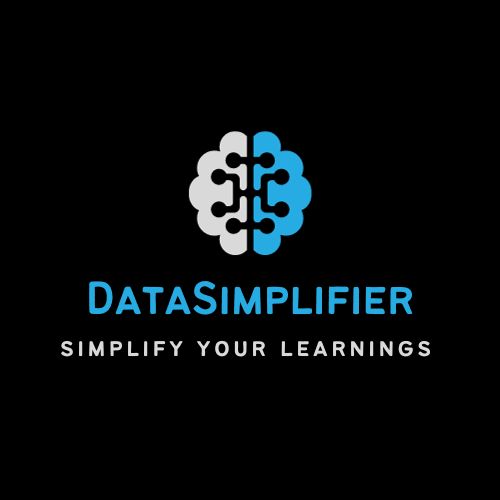Introduction
The job market today is more competitive than ever, with candidates constantly striving to make a lasting impression. If you’re wondering how to stand out among countless resumes and ace your interviews, the answer lies in mastering your soft skills vs hard skills. But what are soft skills and hard skills, and why are they so important?

Soft skills and hard skills are the two pillars upon which any successful career can be built. Whether you’re a fresher aiming to break into the corporate world or an experienced professional looking to climb the ladder, these skills define how you carry out technical tasks and how you interact with others.
In this blog, we will explore what soft and hard skills are, how they differ, how to present them in your resume, and why they are essential for professional success. By the end, you’ll have actionable insights for excellence in job interviews and the workplace. This is the ultimate guide you need to achieve all your career goals.
I. What Are Soft Skills and Hard Skills?
Soft skills and hard skills are complementary skill sets essential for every professional.
- Soft Skills: Personal traits that enhance interaction with others, such as communication, empathy, teamwork, and time management.
- Example: Being a dependable team member or a good listener fosters strong relationships.
- Hard Skills: Specific technical abilities gained through training or education, like coding, graphic design, or financial modeling.
- Example: Proficiency in Python or financial forecasting software.
While hard skills showcase your technical expertise, soft skills demonstrate your ability to adapt and collaborate effectively in dynamic work environments.
II. Differences Between Soft and Hard Skills
Acquisition
- Hard Skills: Learned through structured programs (e.g., coding bootcamps, formal education).
- Soft Skills: Cultivated over time through interactions and self-awareness.
Measurement
- Hard Skills: Tangible and measurable (e.g., certifications).
- Soft Skills: Assessed through behavioral interviews or on-the-job interactions.
Application
- Hard Skills: Focus on task execution (e.g., creating reports using Tableau).
- Soft Skills: Enhance teamwork, leadership, and problem-solving.
Example: A data analyst may excel in using tools like Tableau (hard skill), but without effective communication (soft skill), their insights won’t influence decisions.
III. Why Both Skills Are Essential for Career Success
- Building Relationships: Soft skills like emotional intelligence help establish trust.
- Achieving Goals: Hard skills execute tasks efficiently; soft skills drive team success.
- Career Advancement: Effective leaders balance strategic decision-making (hard skill) with empathy (soft skill).
Example: A project manager must plan tasks with tools (hard skill) while motivating their team (soft skill) during critical phases.

IV. Illustration of Soft and Hard Skills in Resumes
Hard Skills
- Add a “Technical Skills” section for specific tools or technologies.
Example: “Proficient in Python, SQL, and Power BI.” - Highlight certifications or relevant training programs.
Soft Skills
- Incorporate them into achievements:
Example: Instead of “good communicator,” write:- “Led cross-functional teams to deliver a project ahead of schedule, improving efficiency by 25%.”
Pro Tip: This approach ensures your resume is ATS (Applicant Tracking System)-friendly.
V. Soft and Hard Skills Examples
| Profession | Hard Skills | Soft Skills |
|---|---|---|
| Software Developer | Java, GitHub, RESTful APIs | Problem-solving, teamwork |
| Digital Marketer | SEO, Google Ads, analytics tools | Creativity, collaboration |
| HR Manager | Payroll systems, compliance training | Active listening, leadership |
These examples highlight the diverse roles both skill types play across professions.
VI. Acquiring Soft and Hard Skills
Hard Skills
- Take online courses on platforms like Coursera, Udemy, or LinkedIn Learning.
- Earn certifications from recognized organizations.
- Gain hands-on experience through internships or live projects.
Soft Skills
- Practice active listening to improve communication.
- Join team projects to enhance collaboration.
- Seek feedback from mentors to refine skills.
Remember, practice and consistent application are key to mastering both.

VII. Balancing Hard and Soft Skills in the Workplace
The workplace thrives on a balance of technical and interpersonal competencies.
- Hard Skills ensure task accuracy and efficiency.
- Soft Skills foster trust, collaboration, and innovation.
Example: A skilled software engineer might create a technically brilliant product. However, without strong communication (soft skill), the product might fail to align with client expectations.
VIII. Resources for Skill Improvement
Hard Skills
- Courses:
- Coursera’s “Data Science Professional Certificate.”
- Google’s Digital Marketing Certification.
Soft Skills
- Books: “Emotional Intelligence 2.0” by Travis Bradberry.
- Workshops: Public speaking and group discussions.
Use these resources alongside practical experience for continuous improvement.

Conclusion
Soft and hard skills are the twin pillars of career success. Understanding, developing, and showcasing these skills will help you become a well-rounded professional. This guide has empowered you with actionable steps to harness these skills for your advantage.
Want more such tips? Subscribe to our FREE Telegram groups for job notifications and expert advice tailored for Indian professionals. Drop your Telegram handle below to join our premium group!
Remember, it’s not just about possessing skills but also about presenting them effectively to captivate recruiters. Start building your skill set today, and watch your career soar to new heights.
Share the post with your friends

1 thought on “Soft Skills vs Hard Skills: The Key to Crafting a Winning and Best Resume”